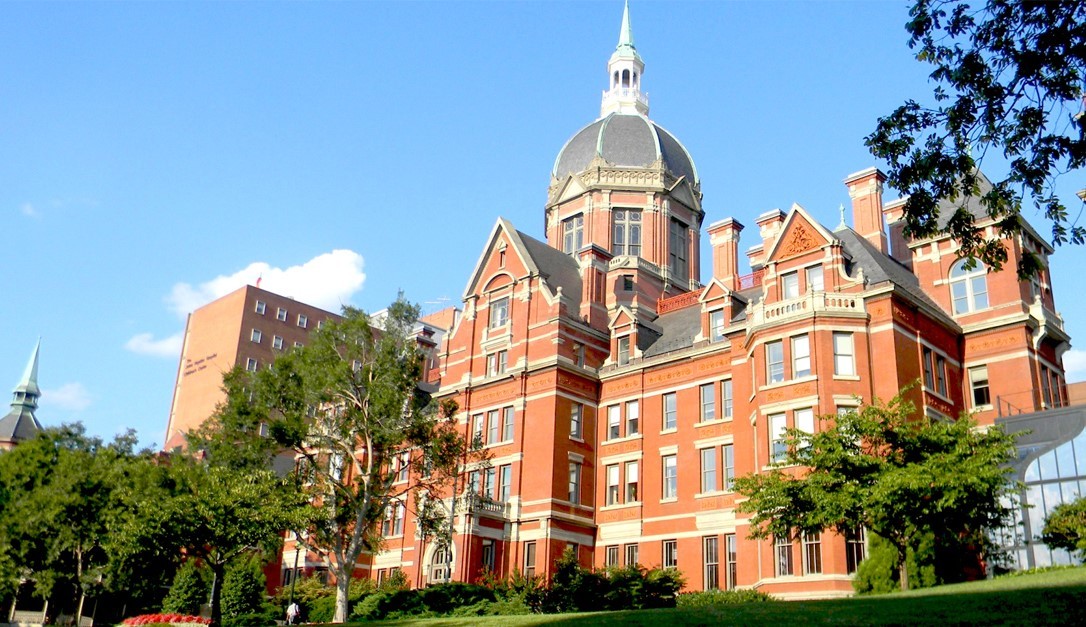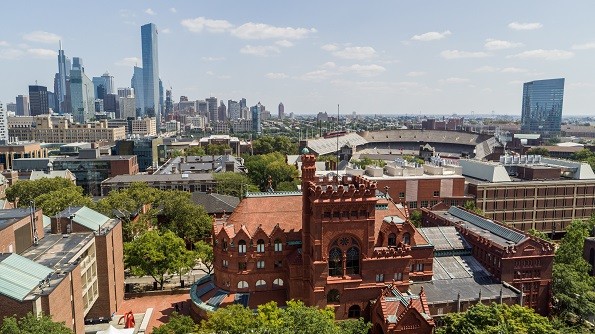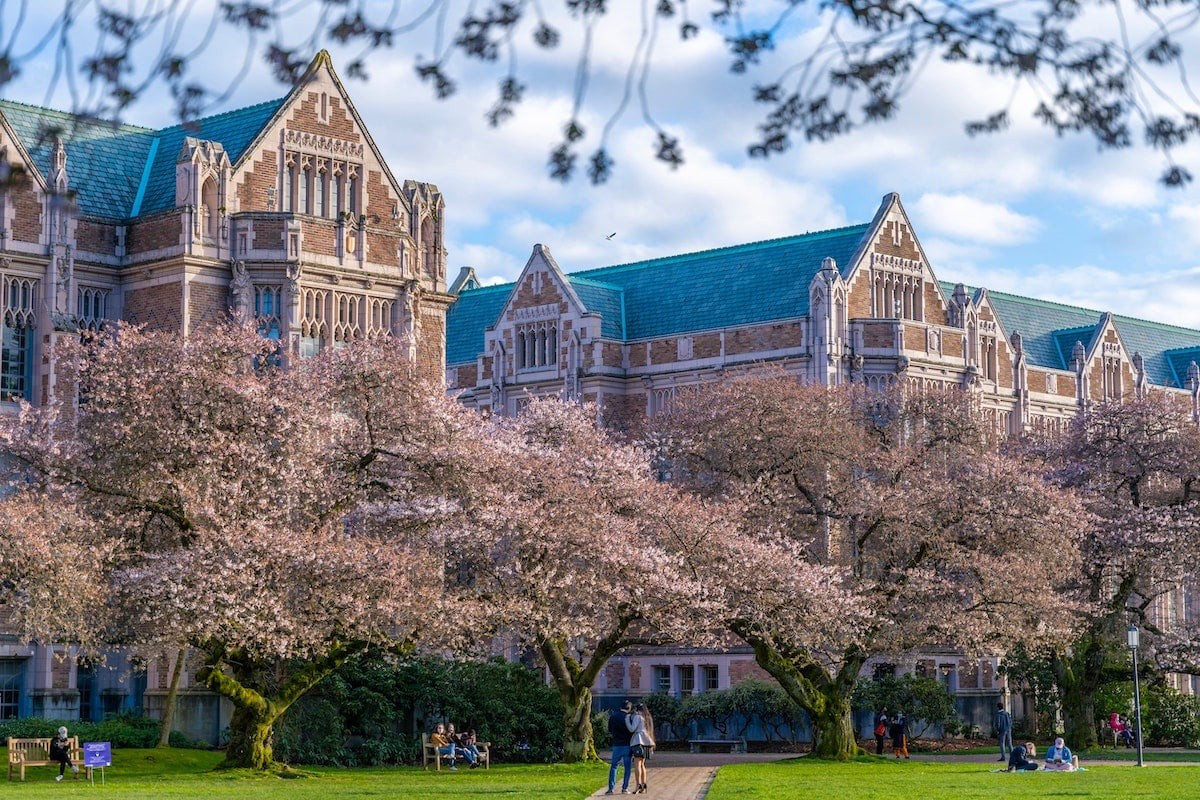Top 10+ Most Prestigious Colleges for Public Health in the US Today
| Content |
Nowadays, modern medicine plays a huge part in human life. Modern medicine effectively applies scientific advances in the field of biomedicine, medical technology, modern machinery and equipment to support diagnosis and treatment with drugs, surgery or therapeutic methods. other.
In a developed country like the US, the demand for human resources in the public health industry is huge. Considered a trendy industry in the US, studying public health will bring many opportunities to work and settle in your future.
Graduating from this major, students studying in the US in the field of public health can work in universities, research institutes, preventive medicine centers, health departments, health-related medical facilities. public health and preventive medicine. Students can also continue to study further to obtain a Master's, Doctoral, specialized level 1, level 2 public health and preventive medicine ...
1. Johns Hopkins University
 |
| Johns Hopkins University |
Link: https://www.jhu.edu/
Johns Hopkins University was founded in 1876. It is a private research university located in Baltimore, Maryland. The organization is named after its first benefactor, Johns Hopkins.
However, the public health program offers two unique study abroad programs in South Africa and Uganda. Likewise, students undertaking this program will earn a Bachelor of Arts in Public Health Studies (BA). Alternatively, they may decide to complete an accelerated master's program to earn a Master of Science in Health (MHS) or a Master of Science in Public Health (MSPH).
Similarly, Johns Hopkins is one of the best public health schools and has an acceptance rate of 13% and a graduation rate of 93%. On the other hand, the student-faculty ratio is 7:1. Also, this school has a tuition fee of $55,357.
2. University of Alabama at Birmingham (UAB)
Link: https://www.uab.edu/soph/home/graduate
The University of Alabama at Birmingham (UAB) was established in 1969 ranked 70th in the US and is rated in the TOP 200 universities worldwide (World Rankings) for the quality of education and training, and ranked 166th in the National Ranking of Public Universities (U.S New & World Report 2020).
For those interested in healthcare, Alabama has one of the best medical programs in the nation, and master's and doctoral degrees are also found here.
UAB's 5 faculties at the School of Public Health will provide you with a wide range of areas of expertise and limitless opportunities to collaborate with our faculty and students to develop professional practices. new interventions to create cures for some of the most complex health-related problems, from improving workplace health and safety to participating in projects that explore complex issues such as HIV/AIDS, obesity and drug abuses according to the most innovative and original scientific methods.
3. Harvard University
Link: https://www.hsph.harvard.edu/
Harvard University was founded in 1636. Years later, in 1650, Harvard received its official charter. Many political leaders and research field titans rose from its halls, demonstrating its high regard for excellence.
The Harvard T.H. Chan School of Public Health is regarded as one of the best public health schools in the world. The Harvard-MIT School of Health Officers was founded in 1913. The school was America's first professional public health training program. Until 1922, it was a collaboration with MIT's allied public health subjects.
Harvard T.H. Chan School of Public Health made numerous ground-breaking contributions to public health. It led studies on diseases, environmental risks to public health, and health policies.
4. Columbia University in the City of New York
Link: https://www.publichealth.columbia.edu/academics/degrees/master-public-health
Columbia University in New York City is an excellent choice for students interested in pursuing a degree in public health. Columbia University is a large private, non-profit university in New York City. Columbia is a great university in general, with a Best Colleges ranking of #14 out of 2,241 schools nationwide.
In the most recent data year, approximately 625 public health students graduated from Columbia. When they enter the workforce, graduates of Columbia University's public health degree program earn $25,201 more than the average college graduate in this field.
5. University of Pennsylvania
 |
| University of Pennsylvania |
Link: www.upenn.edu
The University of Pennsylvania is a large private university in Philadelphia, Pennsylvania that is ranked eighth in the United States. It has 14,000 full-time undergraduate students and is highly competitive, with an acceptance rate of 7.66%. The University of Pennsylvania has 355 majors and is best known for its Finance, Management Sciences and Quantitative Methods, and Philosophy programs, which are all ranked first in the country. University of Pennsylvania has an extremely high tuition of $51,156 per year. 81.13% of graduates are prepared to begin the next chapter of their lives by entering the labor force. After graduation, alumni earn an average of $85,900 per year, which is 107% higher than the national median.
6. Emory University
Link: https://sph.emory.edu/academics/mph-msph/index.html
Emory University is at the top of our list of the best public health master's programs. The Rollins School of Public Health at this private research university frequently collaborates with the nearby Centers for Disease Control (CDC). This affiliation places Emory at the top of the list for any graduate student interested in a career in public health.
Emory has two Nobel laureates, 21 Rhodes Scholars, and six Pulitzer Prize winners among its alumni. Furthermore, according to U.S. News & World Report, Emory is the 21st best national university, and according to the QS World University Rankings, Emory is the 160th best university in the world.
7. East Tennessee State University
Link: https://www.etsu.edu/cph/academics/graduate.php
Their CEPH-accredited MPH program is available entirely online or entirely on campus. The following are examples of foundational courses:
- Health Systems, Regulations and Policies
- Community-Based Methods in Public Health
- Health Leadership and Management
A 300-hour field experience gives students on-the-job training in a public health setting. Students can supplement their MPH degree by completing a graduate certificate in addition to their area of concentration. Certificate programs are available in epidemiology, gerontology, and health care management. ETU also provides joint MD/MPH and PharmD/MPH degree programs, as well as an accelerated bachelor's to MPH program.
8. University of Central Florida (UCF)
Link: https://www.ucf.edu/
The school has more than 200 training majors for international students to choose from. The College offers high-quality undergraduate and graduate training, conducts great school research projects, and impressive creative arts programs that contribute to the development of the community, in There is the Faculty of Public Health with majors such as: Research and disorders of communication behavior, Health information management, Health care service administration, Social work....
9. University of North Carolina – Chapel Hill
Link: https://www.unc.edu/
The University of North Carolina is a public research university in Chapel Hill, North Carolina.
The school's School of Global Public Health enrolls approximately 1,700 undergraduate and graduate students annually. In addition, the department of public health offers students the opportunity to go on to earn a degree at the graduate level in the same program.
Also, the acceptance rate is 27%, while the graduation rate is 90%. The faculty-student ratio is 13:1, while tuition is $8,987 (in-state) and $35,170 (out-of-state).
10. University of Washington
 |
| University of Washington |
Link: https://sph.washington.edu/
The University of Washington was founded in 1861 and is still the West Coast's oldest public university. The university focuses on overcoming obstacles in the pursuit of global progress and societal improvement.
The School of Public Health was officially established in 1970, years after its first departments and components were established following World War II. These departments helped elevate the entire School of Public Health to the status of premier learning and research institution that it is today.
The efforts of its graduates and researchers contributed significantly, putting the university on the receiving end of awards and at the top of global public health university rankings.
11. Brown University
Link: www.brown.edu/
Brown University is a large private university in Providence, Rhode Island that is ranked 12th in the United States. It has 7,428 full-time undergraduate students and is extremely competitive, accepting only 7.07% of applicants. Brown University has 265 majors and is best known for its Entrepreneurship, African Studies, and Latin American and Caribbean Studies programs, all of which are ranked first in the country. Brown University has an extremely high tuition of $57,112 per year. 87.69% of students graduate and go on to the next stage of their lives, working. After graduating, alumni earn approximately $67,500 per year, which is 63% higher than the national median.
12. University of Georgia
Link: https://publichealth.uga.edu/degree/master-of-public-health-mph/
MPH students are trained to provide service and leadership in public health in Georgia, the United States, and around the world through coursework and field experiences. The two-year MPH program at the University of Georgia College of Public Health is designed for health professionals looking to broaden their skills, knowledge, and expertise, as well as students interested in pursuing a career in public health.
A critical shortage of highly trained public health professionals exists. To meet the demand, the University of Georgia established their top Master of Public Health program. Their two-year MPH program is intended for both experienced public health professionals and those who are new to the field. Students can select from seven distinct concentrations as well as several dual degree options. Every student completes a 300-hour internship. For the spring and fall semesters, new students are admitted.
13. Boston University
Link: https://www.bu.edu/
Boston University is a private research university in Boston, Massachusetts. This organization has been historically associated with the United Methodist Church. In addition, the institution has more than 3,900 faculty members and nearly 33,000 students.
Basically, undergraduate students in the department of public health can enroll in a five-year Bachelor of Arts or Science and Master of Public Health program.
Although the class requirements are a bit different. However, these two programs require 128 credits for the BA/BS and an additional 48 credits for the MPH.
Best of all, Boston University has an acceptance rate of 29% and a graduation rate of 85%. Also, the student-faculty ratio of this best public health school is 10:1 while the tuition fee is $53,948.
Conclusion
In addition, there are many other prestigious schools offering this major in the US such as: University of Arkansas, Husson University, University of Akron, St.John's University, Arkansas Tech University... These public health programs prepare students to make a difference and build a healthier community through rigorous training. Some of the valuable skills that students can gain from these programs include planning, critical thinking, organization, and the ability to apply abstract concepts to the real world.
 Top 10 Cheapest Majors in the USA Colleges Today Top 10 Cheapest Majors in the USA Colleges Today Do you hope to secure your financial future by furthering your education but fear taking on too much debt? There are renowned courses available at ... |
 Top 15+ Most Prestigious Schools for Police Majors in the US Top 15+ Most Prestigious Schools for Police Majors in the US Maintaining law and order, apprehending thieves and criminals, and solving crimes on a local and high-quality level are all jobs that require graduates of police ... |
 Top 8 Best Online Schools for Real Estate In The U.S Today Top 8 Best Online Schools for Real Estate In The U.S Today In order to get or keep your real estate license, education is required in all states. However, not all schools are approved by the relevant ... |























